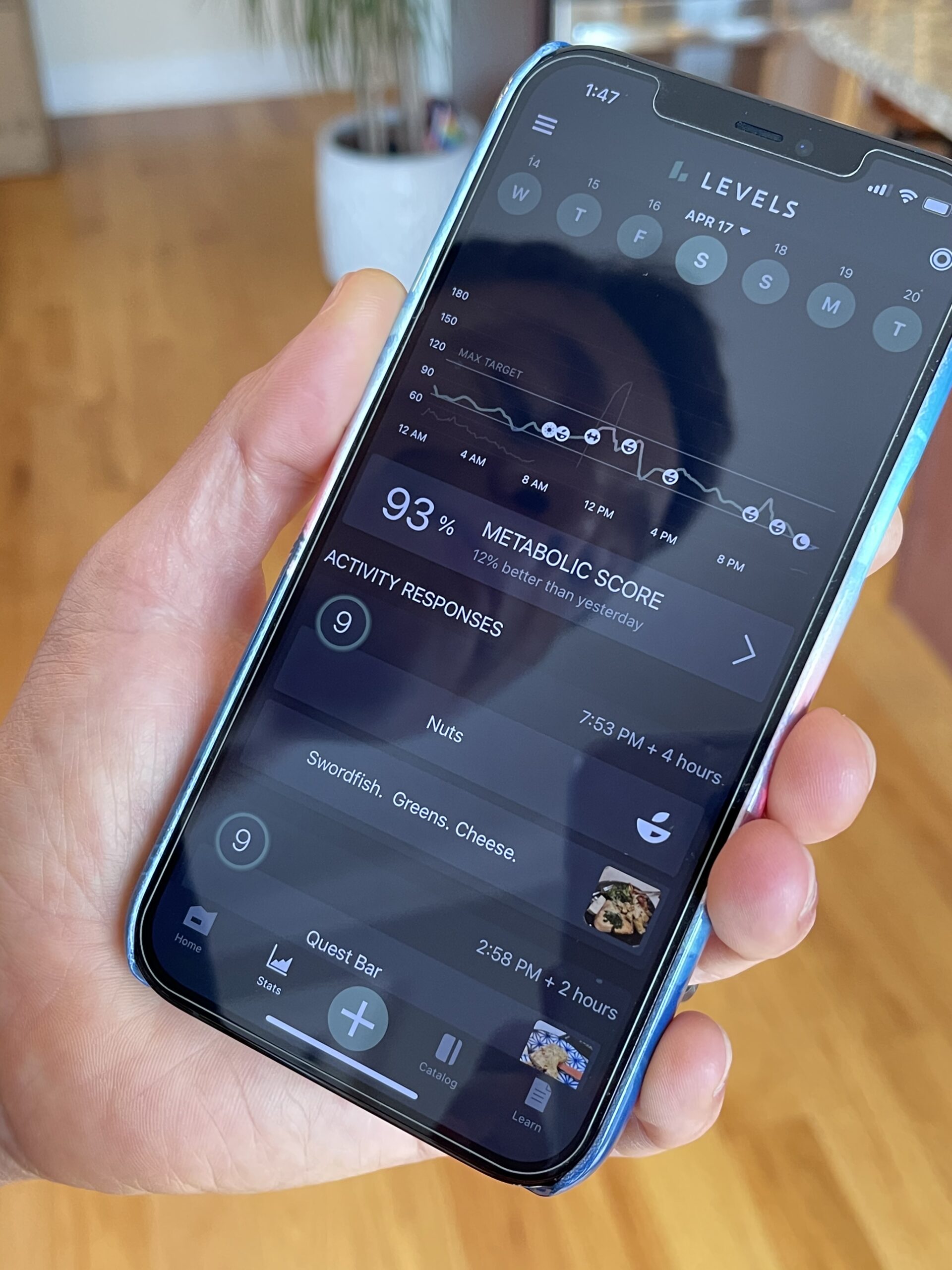Table of Contents
Part 1 – What is Levels Health: Hardware & Software
Part 2 – Pro’s, Con’s, & Big Takeaways
Part 3 – Levels’ Health Claim & Who Is It Good For
Part 4 – Data Tracking & Wearable Devices
Part 5 – Does Levels Health Live Up to the Hype
Can the Levels Health continuous glucose monitor improve your metabolism, help you lose weight, and get you strong and lean? Is this tiny device stuck to your arm for a month worth the price and hassle?
Before you jump on the Levels bandwagon, read Part 1 on the Levels Health software and Part 2 on the pro’s and con’s of their 28-day metabolic fitness program. In Part 3, you will learn who the blood sugar program is best suited for and why.
Who is the Levels Health Blood Sugar Program Good For?


- Athletes & Fitness Buffs: If you already pay attention to your diet and exercise, Levels Health can give you new insights to better fuel your body. You can see how particular macro combinations, meal timing, and supplements impact your blood sugar. If you’re looking to manipulate your body composition, Levels Health can give a proxy of insulin release — insulin being one of the most anabolic hormones in the body — allowing you to strategically push nutrients into cells to help build muscle. Conversely, if you are looking to burn fat, keeping your blood sugar and insulin levels low can help you dip into your existing energy reserves. You can also see how exercise/sport impacts your blood sugar regulation. Along with heart rate data, Level can help train for particular metabolic effects and adjust your food intake for optimal recovery.
- Biohackers & Curious Optimizers: If you’re a fan of other biofeedback devices on the market, you’ll probably enjoy using a blood sugar program. The curious mind will love its constantly updating data stream and instant feedback. Although Levels Health doesn’t give you the same feeling of training you get from neurofeedback or breath monitoring wearables, it does essentially turn your entire lifestyle into an opportunity for optimizing blood sugar. You can experiment with things like exercising before/after eating, altering which macronutrients you eat first, or slowing down/speeding up how fast you eat to see how these toggles impact your body.
- Metabolic Syndrome/Pre-Diabetes: According to the CDC, 1-3 American adults have prediabetes (as diagnosed with elevated blood sugar A1c levels > 5.7) Perhaps even more surprising is that 84% of people with prediabetes don’t know they have it! If you suspect you have issues with your metabolic health and/or have been diagnosed with elevated blood sugar, the Levels Health continuous glucose monitor is made for you. The Levels app is a great tool that can teach you to better manage your blood sugar. It gives you the power of food tracking, as well as warnings when your blood sugar is going too high or low.
Their Claim – Monitoring Blood Sugar Enhances Metabolic Fitness
Levels Health refers to themselves a “Metabolic Fitness” program that “unlocks your metabolic health” by tracking your blood glucose in real time, so you can maximize your diet and exercise. As they say, “data is knowledge, and knowledge is power.”
Continuously monitoring your blood sugar can allow you to make better lifestyle choices if you are willing to educate yourself, experiment, and change your dietary patterns. Because you might not immediately feel the impacts of blood sugar fluctuations, you’re likely to take the data as amusing suggestions rather than imperatives to change.
Jeff Siegel
As I say in 7 Signs It’s Time To Eat Like A Grown-Up, intentionally balancing your blood sugar is one facet of a mature, healthy lifestyle. The question is are you really ready for that choice and responsibility?
Not everyone cares or is willing and able to change their lifestyle to put less strain on their blood sugar regulation body. If you’re not diabetic or diagnosed with a specific health issue, measuring blood sugar may seem irrelevant. While there are long-term health consequences of poor blood sugar regulation, it goes to show that awareness itself is not sufficient for behavior change.
The truth is that altering your eating patterns is one of the hardest things for people to — at least consistently. It involves not only changing your tastebuds, but also shifting how you think about food, how you shop for ingredients, how you cook, and how you relate to your body. If you’re not willing to reassess your entrenched values around perceived notions of health, you’re unlikely to move from your long-held behaviors.
Continue to Part 4 – Data Tracking & Wearable Devices…
To leveling up your mind-body,
~ Jeff Siegel
Download the Free Healthy Habit Checklist & Workbook
Learn more about how 1:1 coaching can your body and life in the shape you want and deserve.




2 Comments